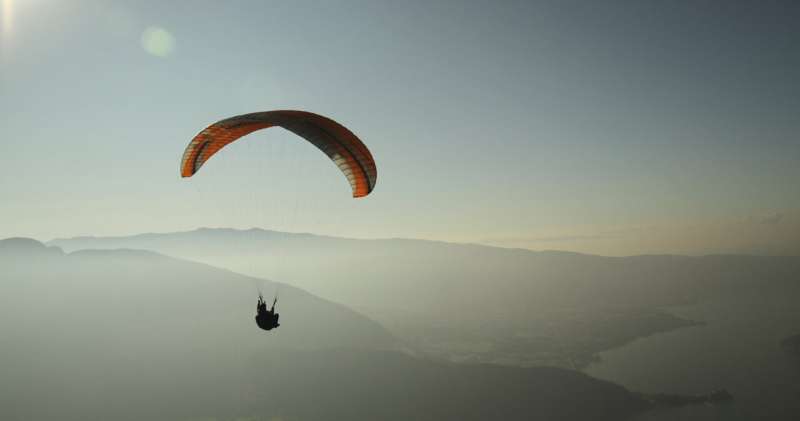People hate flight shame—but not enough to quit flying

Despite flying being the single fastest way to grow our individual carbon footprint, people still want to fly. Passenger numbers even last year alone. The hype around ""—a global movement championed by climate activist Greta Thunberg that encourages people to stop traveling by plane—seems to have attracted than actual followers.
A found that although people in the UK were increasingly concerned about aviation emissions—they were also more reluctant to fly less. This might reflect how flying has become normalized in society, aided by ticket prices which are in real terms than in 1998. I'm increasingly asked by peers about how they can fly "sustainably," the "greenest" airlines, or the "best" carbon offsets to buy. People want to avoid flight shame, without avoiding flights.
The industry has reacted quickly. Websites like Skyscanner, used to compare flight options between destinations, now show customers a "greener choice"—displaying how much less C02 a certain flight emits, compared to the average for that route. These to be flights that use more direct routes, airlines that have newer aircraft, or can carry more passengers.
While where two airlines operating the same route can produce very different emissions, on short-haul routes, emissions differences are invariably small—usually less than 10%. The greenest option would be to travel by train, which has as much as than equivalent flights. However, Skyscanner train options in 2019.
Meanwhile, popular budget airline Ryanair—whose CEO only recently admitted – now claims to have the in Europe. The company's modern, fuel efficient planes—alongside its ability to fill them with passengers—does make it the "greenest" air travel option out there. However, Ryanair had a total of 450 planes in operation in 2019 (compared to ) – meaning that despite its fuel-efficient planes, the sheer quantity of fuel they burn is why they were named one of Europe's in 2019.
Last year also saw become popular. These schemes allow passengers to pay extra so their airline can invest in environmental projects on their behalf—thereby making a flight theoretically "carbon-neutral." British Airways now offsets all of its customers' , while Ryanair also has a scheme allowing passengers to buy offsets for their flights, with proceeds going to projects including a whale protection scheme—which appears completely unconnected to at all.
Easyjet has also started buying offsets on behalf of all its passengers—costing a total of a year. This has apparently been a successful , with internal research finding that passengers who were aware of the offsetting policy were more satisfied with their flight than customers who didn't know.
Passengers might feel satisfied, but whether their offsets actually reduce carbon is less clear. the time-lag associated with offsets, especially tree-planting schemes. A plane that flies today pollutes today—but a tree planted today . As for "avoided deforestation" , which aim to protect existing trees, proving these trees without offset funding is almost impossible.
Airlines often claim that their offsets , at a conveniently low price. For example, Easyjet only invests £3 per tonne of carbon it emits in a carbon offset scheme. But such a low-ball investment might not even be able to give these carbon offset schemes the finances needed to actually offset the effects of one tonne of carbon. For context, the EU Emissions Trading Scheme currently , and the Intergovernmental Panel on Climate Change thinks carbon should be traded at a . Newer, and more expensive – which extract carbon directly from the air look promising—but are hard to scale up.
The other danger of these cheap offsets is that travelers might believe they solve the problems caused by flying—so they won't change their travel behavior. Indeed, even argues that there's no need for people to fly less, because low-carbon and electric flights are around the corner. Despite reports that planes are coming to the rescue, current plane technology is going nowhere fast.
This is partly because jet fuel on international flights , which leaves little financial incentive for the industry to invest in big technological shifts. Aircraft manufacturers Boeing even predicts it will to accommodate the flying each year by then. Those planes will look, sound and pollute much like today's ones.
Aviation is currently forecast to account for of global emissions, and be the UK's in 2050. And if the government's recent bail-out of is anything to go by, aviation will continue to be let off the hook.
Carbon offsets and "greener" tweaks might only help to further rationalize the status quo, and prevent tougher policies from coming into play—such as , or stopping airport expansions. But as climate-related natural disasters become more common, radically changing our attitude to flying will soon be unavoidable.
Provided by The Conversation
This article is republished from under a Creative Commons license. Read the .![]()



















